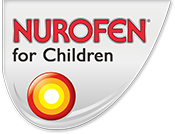Health and Period Pain - What's the Link?

It is well acknowledged that women experience pain during their menstrual . This pain - often referred to as ‘period pain’- can vary in intensity, or for some (lucky) women, may not occur at all. In this article, we will look at what causes period pain and if there is anything that can be done to help alleviate its symptoms.
What causes period pain?
Period pain is caused by chemicals that are a natural part of your body's chemistry, called prostaglandins.
During your periods, prostaglandins are released in the uterus (womb), but some women's bodies produce higher levels than others, which can lead to greater pain and discomfort. These prostaglandins cause contraction of the muscles in the wall of the uterus, which can be sensed as a cramping pain. The contraction helps the lining of your womb to shed away as a natural and routine part of your monthly cycle.
Prostaglandin levels are highest just before the start of your period. As a result, pain is most commonly felt at this point and is usually when it is at its most severe. Prostaglandin levels drop off during the next couple of days and the pain usually subsides. Less commonly, period pain may also be caused by an underlying medical condition called secondary dysmenorrhea, which you can find further information on here.
Can a healthy lifestyle help period pain?
The simple answer is yes. Here are four points to consider that may help relieve your period pain and discomfort:
- Smoking Habit:
Smoking can make period pain worse. So seeking replacements, or cutting down during your period can be beneficial.[1]
- Your Diet:
- Looking at your diet, you may find it can actually help if you cut down on coffee and alcohol around the time of your period
- Think about your intake of salt, and reduce it if possible
- Try to avoid eating processed or fatty foods
- Exercise:
Try to take some regular exercise, both during and between periods; it can help to reduce the pain. You can find some tips on exercising during your period here.
- Relaxation:
Try to relax. That’s easy to say, of course, but it can be done at home simply by trying to rest quietly, or through the use of yoga, Pilates or meditation.
Medication for period pain
Even with some lifestyle adjustment, you may sometimes need a little extra help for period pain. That's when Nurofen Express Period Pain can provide you with some welcome pain relief. Here’s what Nurofen can do:
- Nurofen's active ingredient, Ibuprofen, blocks the production of prostaglandins, reducing the amount of pain by targeting the source.
- Nurofen Express Period Pain is designed to be easily absorbed by your body. The liquid released is quickly absorbed to help relieve pain and lasts up to eight hours with a 400mg dose.
- Nurofen Express Period Pain starts getting to work in just 10 minutes* so you don't need to stop when your period starts.
- Studies have shown that NSAIDs (such as Ibuprofen) can reduce pain more effectively than paracetamol.1
You may also find additional simple measures can help your period pain: Try a warm bath, a shower or using a hot water bottle. Nurofen Heat patches can also be very effective.
But if your period pain is not relieved by medication or other measures, and it interferes with your daily life - or if the pain lasts longer than your period does - you should check with your doctor.
*Refers to absorption
Nurofen Express Period Pain 200mg Soft Capsules contains ibuprofen. For pain relief. Always read the label.
Nurofen Express Heat Patches are a non-medicated device.
NSAID = non-steroidal anti-inflammatory drug
Information sources for this article:
http://www.nhs.uk/Conditions/Periods-painful/Pages/Causes.aspx
http://www.nurofen.co.uk/symptoms/adult/period-pain/
http://www.nurofen.com.au/symptoms/adult/period-pain/
http://www.nhs.uk/Conditions/Periods-painful/Pages/Treatment.aspx
http://www.patient.co.uk/health/period-pain-dysmenorrhoea
http://www.healthline.com/symptom/painful-menstruation
[1] http://www.nhs.uk/Conditions/Periods-painful/Pages/Treatment.aspx
